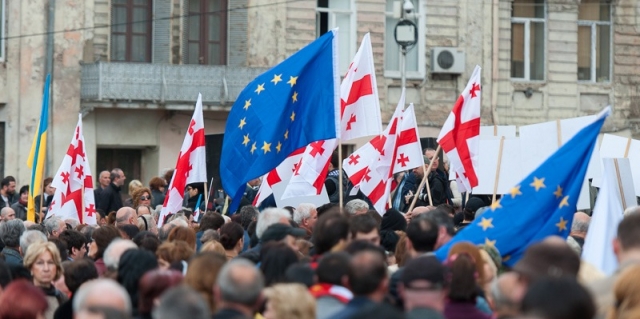15 NGOs Say Euro-Atlantic Integration Support Has Decreased in Georgia
The Coalition for Euro-Atlantic Georgia, which unites 15 Non-Governmental Organizations (NGOs), say the number of supporters of Georgia’s Euro-Atlantic integration has decreased.
In their joint statement, the NGOs express concern over the issue, noting that the existing dynamics reveal the “inefficiency and the counter-productivity of the Georgian government’s strategic communication on European integration.”
The coalition provided results of the National Democratic Institute’s (NDI) opinion survey released last month, which claims that the number of respondents who are in favor of joining the European Union decreased from 62% in June 2017 to 60% in December 2017, and the number of those who support joining the Eurasian Union increased from 23% to 29%.
Moreover, according to NDI survey, 64% of respondents said they approve of the government’s stated goal to join NATO, a two percentage point decline compared to June 2017. 26% are against joining NATO, up from 23% in June 2017.
“Under the circumstances, when the whole world is aware of hybrid threats, aimed at impacting on public awareness and mood, Georgia finds itself in the epicenter and the government’s strategy and mechanisms of strategic communication are ineffective both inside the country and with European structures,” the statement of the coalition reads.
The NGOs also stress that the involvement of all branches of government, civil society organizations and expert communities is necessary to solve this problem. The coalition expressed readiness to cooperate with the government and international partners in this regard.
“It is necessary to create institutional mechanisms for the planning, execution and coordination of strategic communication in the Georgian government and the political will of the government for their effective implementation,” the NGOs stated.
By Thea Morrison












